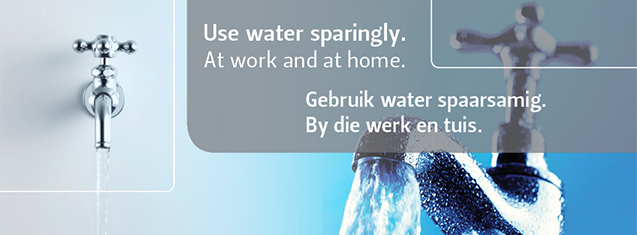Latest News Archive
Please select Category, Year, and then Month to display items
08 April 2021
|
Story Thabo Kessah
|
Photo UFS Photo Archive
 Dr KPD Maphalla with former UFS Chancellor, Dr Franklin Sonn, during the graduations in April 2007.
Dr KPD Maphalla with former UFS Chancellor, Dr Franklin Sonn, during the graduations in April 2007.
The University of the Free State is sad to learn of the passing of alumnus and award-winning Sesotho literary giant, Dr KPD Maphalla.
The literary works of Dr Khotso Pieter David Maphalla, like many other African writers and artists, were influenced and characterised by his own era of powerful forms of oppression and exclusion from dominant literary discourses. In his own right and through his writings of poetry, novels, short stories, and kodiamalla (dirge), he articulated a deliberate political and social protest and pushed for a place for African languages in literature at the height of apartheid.
“He entered the professional scene with his ground-breaking novel, Kabelwamanong, in 1982 at the age of 27. His career actually started in 1971 while he was still at school. Since his first novel, he has produced at least two books annually, covering the genres of poetry, novels, dramas, and short stories. As a dramatist, Dr Maphalla has written a number of excellent and educative radio dramas for the then Radio Sesotho (now Lesedi FM),” said his long-time friend and Head: African Languages at the University of the Free State, Dr Nyefolo Malete.
“It was for this writing prowess that he received recognition from the UFS when he was awarded an Honorary Doctorate in Literature by the Department of African Languages during a momentous ceremony on the Qwaqwa Campus in 2007,” added Dr Malete.
Dr Malete also revealed that, despite losing the use of his right hand after suffering a stroke following a car accident in the late 1990s, Dr Maphalla continued writing using his left hand. “He was adamant that, what he referred to as his ‘supposed disability’, would not deter his passion for writing.”
Dr Maphalla’s work has also produced numerous scholarly studies by the likes of Profs Moleleki Moleleki (protest poetry), Thapelo Selepe (lament and protest poetry), and Dr Seema Seema (process of cross-cultural communication). He was a committed Qwaqwa community member, who was also instrumental in the founding of Qwaqwa Community Radio (2000) and Metjodi Writers (2006), among others. He has written more than 70 books, many of which have been prescribed texts in schools.
Some of the awards he has won include:
South African Centre for Digital Language Resource (SADiLar) Sesotho Lexicographic Unit (Sesiu sa Sesotho) Lifetime Award for outstanding literary works and for promoting Sesotho literature (2019).
The Literature Festival and the University of the Free State Award for enormous contribution to Sesotho literature by a South African writer (2019).
Lifetime Achiever Award in Literature awarded by the Department of Arts and Culture (2005).
M-Net Book Prize for Sesotho poetry (2005). The first and thus far the only Sesotho author to have received this honour.
M-Net Book Prize for best novel (1996).
De Jager-HAUM Literary Award for his volume of short stories, Mohlomong Hosane (1993).
Thomas Mofolo Trophy for Best Novel, Best Poetry, and the Overall Award (1992).
Thomas Mofolo Trophy for Best Poetry (1991).
Dr JJ Moiloa Floating Trophy for Best Sesotho Poetry Book of the Year, Kgapa tsa ka (1985).
Water use on campus
2015-12-14

Report water wastage on the campuses.
High temperatures and the fact that no rain was falling, puts pressure on the existing water supply. The Free State is one of the most arid areas in the country, and the province was also declared a drought area by the government.
It is therefore very important that the UFS community will use water sparingly – both where you live and in the workplace.
Report water wastage on the campuses by sending an email to news@ufs.ac.za or phone 051 401 3422.
Tips to use water sparingly in the workplace:
- Set up an inventory regarding water use and identifiable water management goals in your department. Control this to indicate progress.
- Keep a bottle of tap water in the fridge to avoid running the tap until the water is cold.
- Fill the kettle with water according to your needs.
- Sweep paving with a broom instead of washing it with water.
- Apply mulch to your garden, as it can reduce water use by up to 70%.
- Don’t rinse glasses and other dishes under running water. Plug the sink and reuse the water in the garden.
- Where possible, recycle water. Support projects making use of recycled water.
- When waiting for hot water to come out of the tap, place a bucket under the tap so that the cold water can be used later.
- Don’t let water run wild. Make sure all taps in the kitchen or bathroom are closed when leaving the office/residence.
Tips to use water sparingly at home:
- Showering can use up to 20 litres of water per minute. Take short showers, less than 5 minutes.
- Turn the tap off between washing your face, brushing your teeth or shaving
- Ensure that you have a full load of washing when using the washing machine.
Source: water tips: Rand Water, Bloem Water.